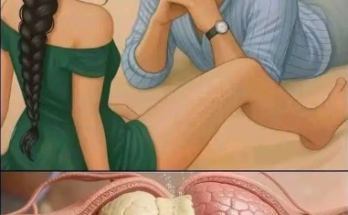“The Room Beneath the House”
They told her not to go down there.
The door to the basement had been sealed for years, hidden behind a false wall in the pantry. Her father, a man of few words and many secrets, had once said, “Some truths don’t need light. They just need silence.” And for most of her life, Mara obeyed.
But silence has a weight. And hers had grown unbearable.
It started with the dreams. Flickering images of a boy she didn’t recognize, standing in the hallway, whispering her name. The scent of burnt wood. A lullaby she’d never heard, but somehow knew. Her therapist called it “trauma echo”—the mind’s way of processing inherited grief. But Mara wasn’t convinced. These weren’t echoes. They were invitations.
The day she broke through the wall, the air changed. It wasn’t just dust and mildew—it was memory. Thick, suffocating, alive.
The staircase was steep, carved from stone, slick with condensation. As she descended, the temperature dropped. Her flashlight flickered. And then, she saw it.
A room. Small. Windowless. Lined with shelves of VHS tapes, each labeled in her father’s handwriting. Dates. Names. Some she recognized—family friends, neighbors. Others were strangers.
In the center of the room sat a single chair. Leather. Cracked. Facing a television.
Mara approached the tapes. Her fingers trembled as she pulled one labeled “June 3, 1997 – L.” She inserted it into the player.
Static. Then a flicker.
A girl—no older than ten—sat in the chair, eyes wide, hands bound. Her voice was muffled, but her eyes screamed. Behind her, a shadow moved. Her father’s voice, calm, instructive: “Tell the truth, Lila. Say what you did.”
Mara stopped the tape.
She stumbled backward, bile rising in her throat. This wasn’t discipline. It was ritual. A twisted form of justice. Her father had been a judge. Respected. Feared. But this—this was something else.
She played another. “August 12, 2001 – J.”
A teenage boy. Bruised. Crying. “I didn’t mean to hurt her,” he sobbed. Her father’s voice again: “Confession is the first step. Redemption is earned.”
Tape after tape, the pattern emerged. Children. Teenagers. Each accused of something—bullying, theft, violence. Each forced to confess. Each punished.
But it wasn’t just punishment. It was theater. Her father had created a courtroom beneath their home. A place where he played judge, jury, and executioner.
And then she found it.
A tape labeled “Mara – March 15, 1995.”
Her hands froze.
She was three years old that day. She remembered nothing. But the tape remembered everything.
She pressed play.
The screen showed her, small and smiling, sitting in the chair. Her father knelt beside her, holding a doll. “Tell me what you did to your brother,” he said gently.
Mara blinked. “I didn’t mean to.”
“You pushed him down the stairs.”
“I was mad.”
“Say it louder.”
“I was mad!”
He smiled. “Good girl.”
The tape ended.
Mara collapsed.
Her brother had died that day. A fall. An accident, they said. But she had no memory. No guilt. Only grief. Her mother had never spoken of it. Her father had buried it. And Mara had lived in the shadow of a lie.
But now, the truth was here. And it was unbearable.
She spent the night in the basement, surrounded by ghosts. She watched every tape. Every confession. Every punishment. And with each one, her father’s image shattered further.
He hadn’t just sought justice. He’d craved control. He’d built a shrine to guilt, a temple of shame. And Mara had been its first disciple.
When dawn broke, she emerged from the basement changed.
She didn’t call the police. Not yet. She needed to understand. To confront.
Her father was in the garden, pruning roses. He looked up, smiled. “You found it.”
She nodded.
“I wondered when you would.”
“Why?” she asked.
He wiped his hands. “Because truth is heavy. And you were strong enough to carry it.”
“No,” she said. “You made me strong enough to survive you.”
He didn’t flinch.
“I wanted you to know,” he said. “Before I go.”
“Go where?”
He smiled. “Where all judges go when the court closes.”
That night, he died in his sleep. Peaceful. Unrepentant.
The tapes were turned over to authorities. The house was searched. The victims were contacted. Some forgave. Others didn’t. The media called it “The Basement Tribunal.” A legacy of twisted justice.
But for Mara, it was simpler.
It was the room where her childhood ended. And her truth began.
She kept one tape. The one labeled with her name. Not as a reminder of guilt, but of survival.
Because sometimes, the darkest rooms hold the brightest revelations.
And sometimes, the truth is the only way out.



